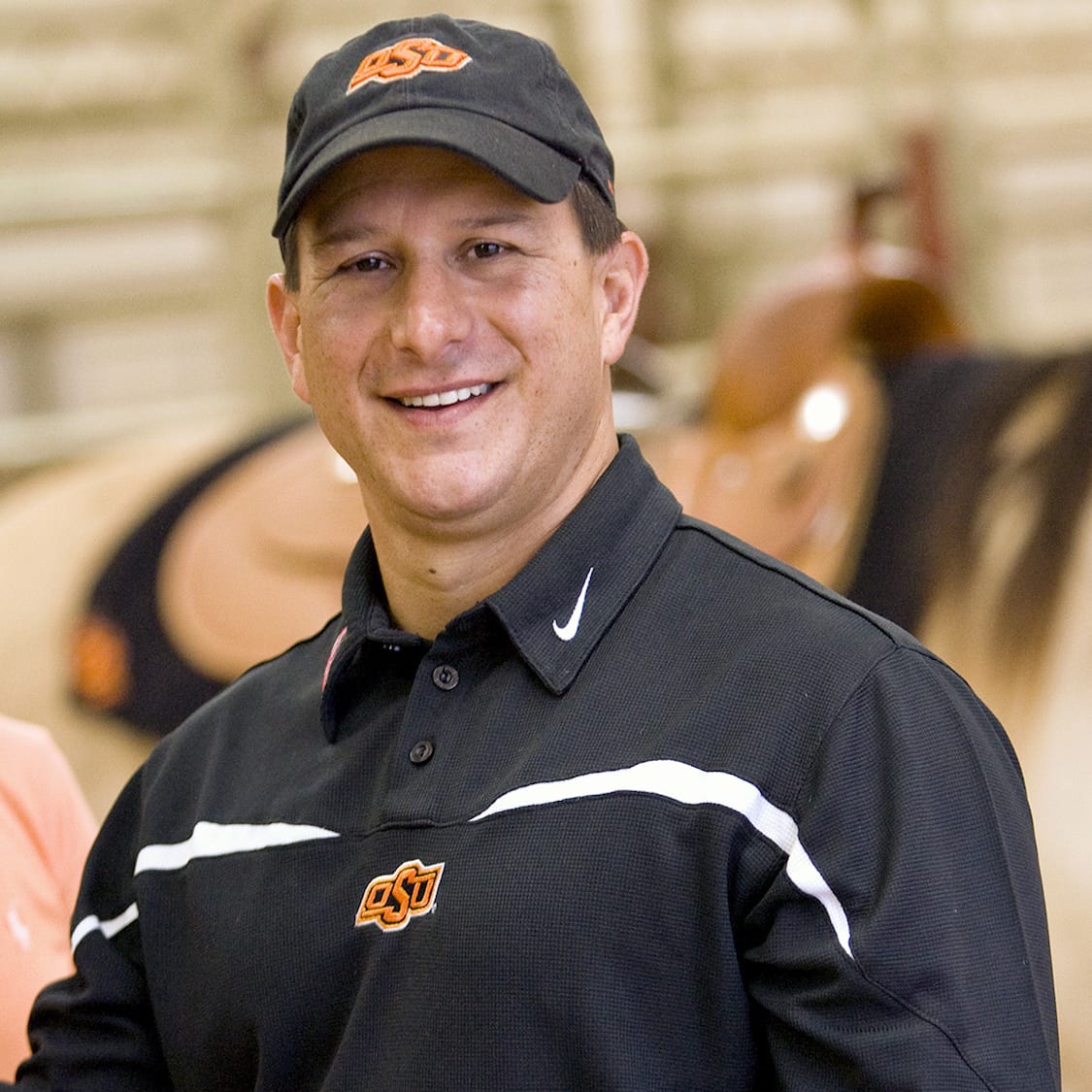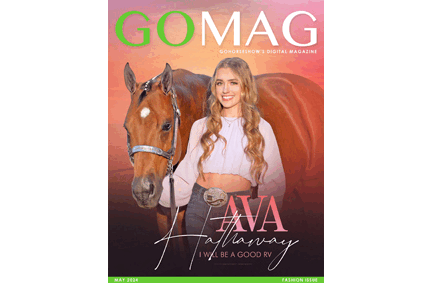As a former NCEA equestrian athlete with a super strong type-A personality, it is no surprise that I have dozens of notes in my iPhone analyzing the winning rides and qualities of riders who are consistently in the top ten. I’ve sought knowledge through reading and watching videos ever since I was a little kid, and after all these years, I haven’t changed a bit. Maybe, I tow the line between obsessive and dedicated. But the way I see it, in the uncertain world of equestrian sports, a girl’s got to be prepared and make her own luck.
Recently, I interviewed Oklahoma State’s Larry Sanchez for more insight into what separates the good from the great in collegiate riding. Sanchez has the credentials and he’s seen it all. As head coach, Sanchez has led the Cowgirls to five National Championships and four Big-12 Championships, and has been coaching college riders for over 20 years. So take notes, all my type-A sisters. I won’t judge.
1. They have serious work ethic. I’m talking the ‘I’m doing no stirrups until I’m blue in the face’ work ethic. They get up early and they stay late, even in the winter when the wind hurts their face and they’ve got to put on ten layers just to get to the barn. But putting in the long hours pays off, and an athlete’s behind the scenes effort does not go unnoticed by recruiting coaches. “When I’m recruiting, I talk to their trainers, the friends of their trainers, and even their barn mates,” Sanchez says. “I want to find out who they are as a person and know their work ethic. Are they the last one at the barn at the end of the day? Or do they just show up and leave as soon as their lesson is over without thinking twice about it? I need to know how dedicated they are.”
2. They’re team players. The best college athletes are not only champions individually, but champions for their team. College sports give equestrians the rare opportunity to compete together and win or lose as a team. “You have to realize that it takes more than just you to be successful in this sport,” says Sanchez. “When I’m recruiting, it is definitely a positive if a rider has competed in team sports through their high school years.”
3. They’re great riders. Ha, of course they are! But seriously, while this one may be a little obvious, you really do need to have a strong foundation to build on before you can compete at a high level in college. Sanchez says more time in the saddle, more time in the show pen, and more time on unfamiliar horses will get you there. Of course, the best riders can do more than sit pretty and execute in the show pen. “I learn a lot about who a rider is from the warm-up ring,” says Sanchez. “It tells me if they have feel and if they have timing. I’m looking for girls that are feeling it and thinking on their own and being able to adapt quickly without necessarily being told first.”
4. They’re ready to learn something new. Catch riding is a different ballgame and the best riders learn the game by being a sponge for knowledge. “They have got to be very open to try new things, hear new things, and accept coaching,” says Sanchez. “We try to teach them how to adapt to different horses and unexpected situations as quickly as possible.” And if you ever start feeling too big for your britches, just ask any collegiate equestrian about ‘switch day’ and prepare for a laugh.
5. They hit the books. If you’re even considering riding in college, then get ready to study. Collegiate equestrian athletes are expected to maintain a high GPA, and both the NCEA and IHSA recognize and award individual academic achievements. The best college athletes perfect the art of time management so that traveling to competitions doesn’t affect their grades negatively. They use their dedication to their sport as motivation to reach higher in the classroom, and they look to student athlete resources when they need additional help. “Student athletes who utilize the academic resources and are fully committed will be successful academically,” says Sanchez.
6. They’re confident in their skills. Even if they’re not flawless, they’re skilled riders and they know it. They expect to win. They believe in themselves and their abilities. “Confidence is important in any sport and it can help you with whatever sport you’re doing, but I believe it is particularly so in equestrian,” says Sanchez. “When you are working with a 1,000 plus pound animal, they can sense that confidence that you have, too. When a rider is confident about the pattern they are about to perform, it draws your eye more as a judge and the horse can also pick up on that.”
7. They learn from their teammates, not just their coaches. Remember that sponge for knowledge thing? Here it is again. Every rider has their own unique skills and talents and every rider has something they can improve upon. The best competitors utilize the diversity on their team to learn new tricks and broaden their skill set. “When you are riding in practice and someone else happens to be on a horse that you struggle with, be able to open your mind and say what are they doing so that they get along with that horse and so that they are functioning at a higher level than when I ride,” says Sanchez. “Our riders come from all across the country and have ridden with many different and very respectable trainers. Why not try and gather all that information for the benefit of the team, rather than everyone keeping their individual secrets?”
8. They work out to feel good about themselves. This has nothing to do with the amount of people it takes to zip up your chaps, I promise. This is about self-confidence (again – are you starting to see a pattern here?), recognizing yourself as an athlete and improving your flexibility. Stretching has numerous benefits for riding and can help prevent many riding related injuries. “To me, the most important part of working out is that you feel better about yourself,” says Sanchez. “When you are on a workout program, you carry yourself better and your mind is more clear.” Plus, when was the last time being in shape hurt your riding? Never, that’s when.
9. They use failure as motivation. The best competitors have spun five times, too. They’ve forgotten to drop their stirrups and they’ve picked up the wrong lead. But instead of focusing on their failures, they have tunnel vision for success. They focus on what they’re going to do right. “You shouldn’t go into the next pattern thinking ‘don’t spin five times.’ Because then that’s what you are focusing on,” says Sanchez. “You should focus on ‘I’m going to spin four times.’ It seems so simple, but it’s focusing on the positive and what you want to do rather than focusing on the negative.”








